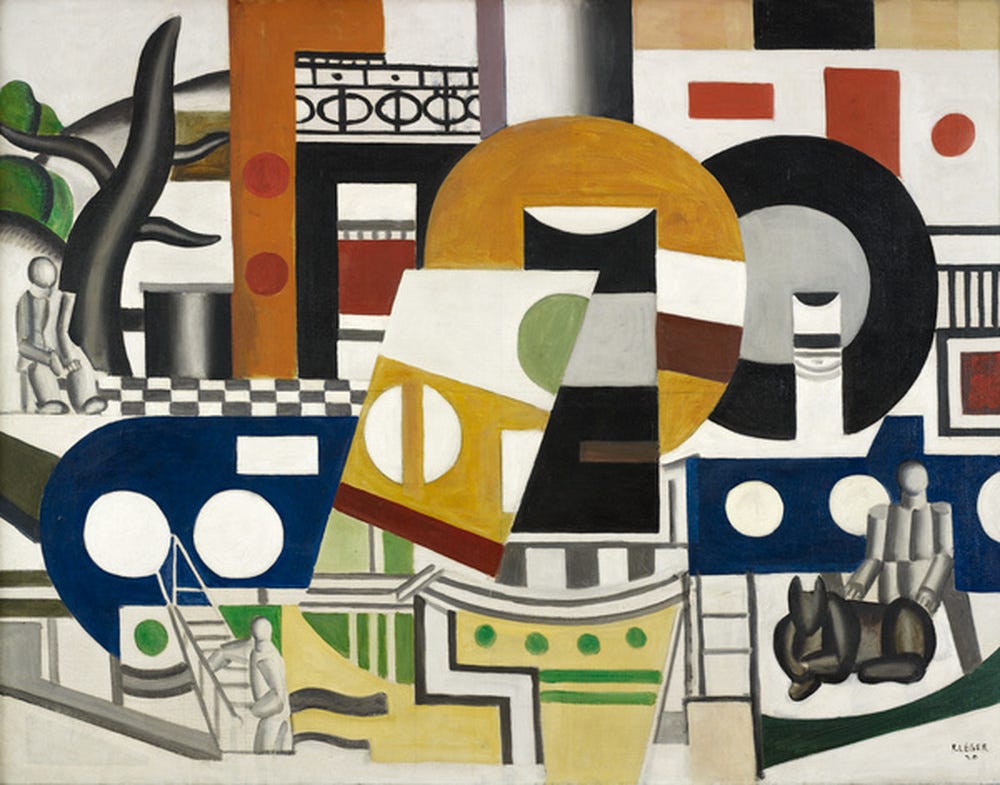This is 3rd part in the series Quid ex Machina, which examines the deep, under-explored, and Unseen impact of AI on humans and our societies. See here for the full series.
Today’s theme song is The Sound of Silence by Simon & Garfunkel.
For the series Quid ex Machina, I’ve decided to place shorter essays (like this one) between the longer parts — similar to how light plates come between rich dishes in a full-course meal. These shorter pieces are also more reflective and personal. Reflective, because they let me share the “why”s behind each long essay, and give teaser-trailers to the next segment. Personal, because they are more casual, letting-my-hair-down writings, and hopefully they’ll convince you that I’m a human of flesh and blood, instead of an AI without any hair to let down.
I started writing this series, because I find the framing of “AI-as-our-new-god” problematic, and want to give a nuanced, in-depth look into what AI really means for humans and our societies. It bugs me that we’d worship human-made technology – that is, tools – and think of such tools as be-all-and-end-all solutions. Is our human world so bad that we have to let machines call the shots? Do we feel so hopeless about the state of humanity, that we’d submit ourselves to our tools, and hope that these tools solve all our human problems?
Newsflash: tools make our lives easier, but tools don’t make our human problems go away.
Tinder lets you swipe right on hundreds of profiles a day, but Tinder can’t and doesn’t make you into a more charismatic date.
ChatGPT churns out ten sonnets in split seconds at our request, but ChatGPT doesn’t and can’t turn us into poets with our own idiosyncratic imaginations.
Tools are about doing things faster at larger scales with greater efficiency; but becoming a charismatic date or a visionary poet is a human desire, and human desires can only be fulfilled with human actions, rather than tools and their efficiencies. Visionary poets are made of active imaginations and life experiences, not second-by-second ChatGPT prompts. Charismatic dates are made of good humor and fun conversations, not 20,000 Tinder swipes. But having life experiences and carrying a good sense of humor are active decisions made by people — by human beings with ideas about who they want to be, how they relate to others beyond themselves, and how to make meanings out of seemingly mundane existences.
So you see, machines don’t make decisions for humans. Humans make decisions for humans, regardless of machines.

And if you feel the seemingly mundane existences are threatened by AI, I hear you and see you. The AI research crowd (yours truly included) is not the best at communications, and the hype-makers only present exaggerated and distorted realities. These hype-makers are as wrong as the machine-worshipers: AI is a tool invented by humans, and tools of human inventions serve humans. We are masters of our tools, not subservient worshipers to them.
But AI is a very powerful tool: the more powerful a tool is, the deeper it leaves its marks on our society, and how we use the tool matters. In my attempt to tear away the AI hype, I want to show those marks that are still Unseen.
In Act II, we’ll zoom out from AI’s marks on individuals (the future of artistic expression and the foundations of human agency) to our broader society, and find out what AI means for this world as we know it. Barring unforeseeable circumstances, the first part of Act II comes out next week.
Thank you for reading Earthly Fortunes. If you like it, please share it. Subscribe for free to hear more about the earthly fortunes: time, dovetails, variety of life, and the Unseen of AI.
Let me know your thoughts in the comments, DM me on Twitter or Instagram, or just reply to the email!




Let-your-hair-down-Helen is leaving me hungry for the next course!
“But having life experiences and carrying a good sense of humor are active decisions made by people — by human beings with ideas about who they want to be, how they relate to others beyond themselves, and how to make meanings out of seemingly mundane existences.” -- So simply and beautifully put, Helen. I love that you mention the sense of humor there, as I believe it to be a key trait that makes humans human. Having a good sense of humor as active decision: I find it brilliant. Kudos (from your semi-serious fan :)).